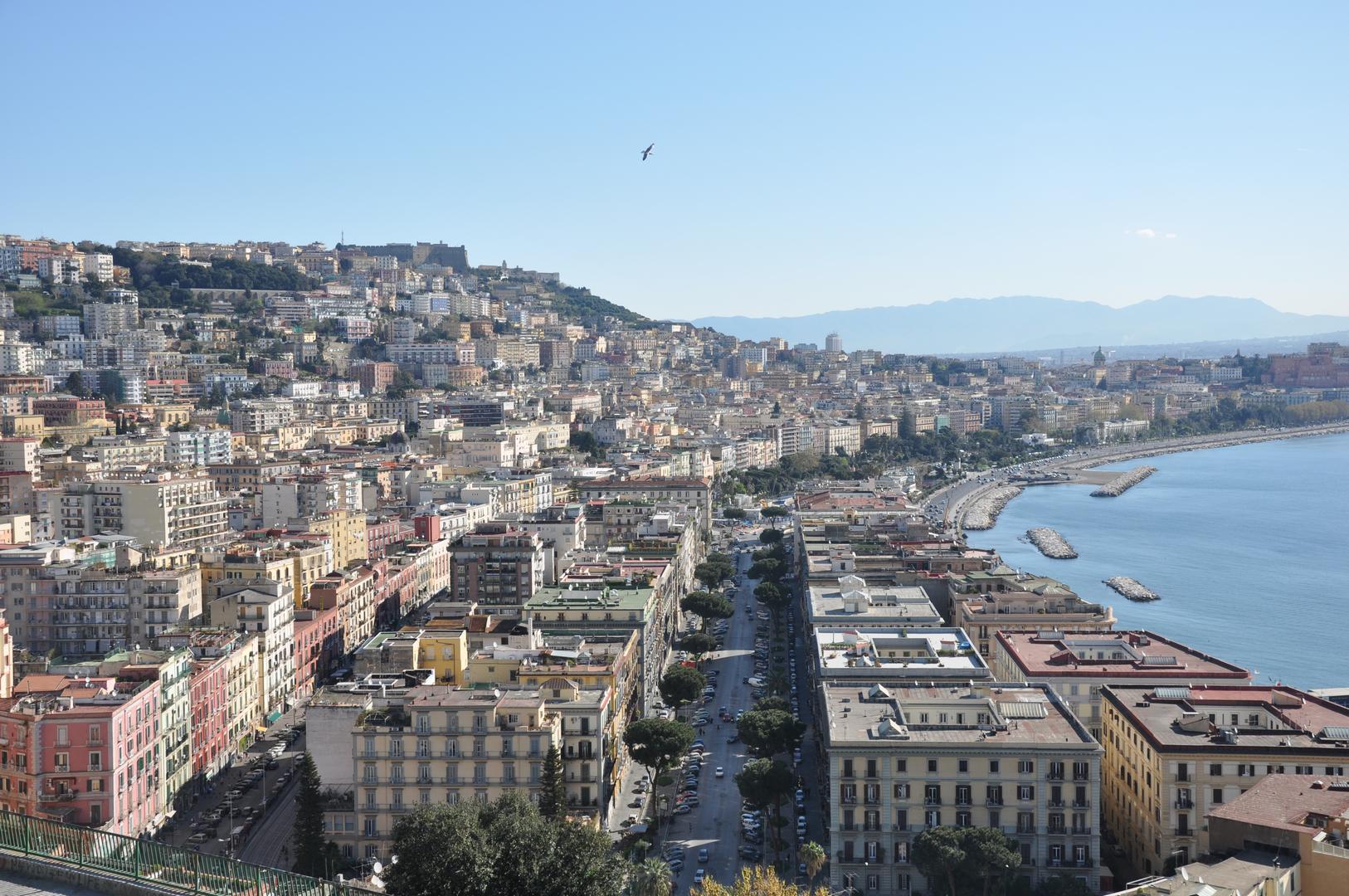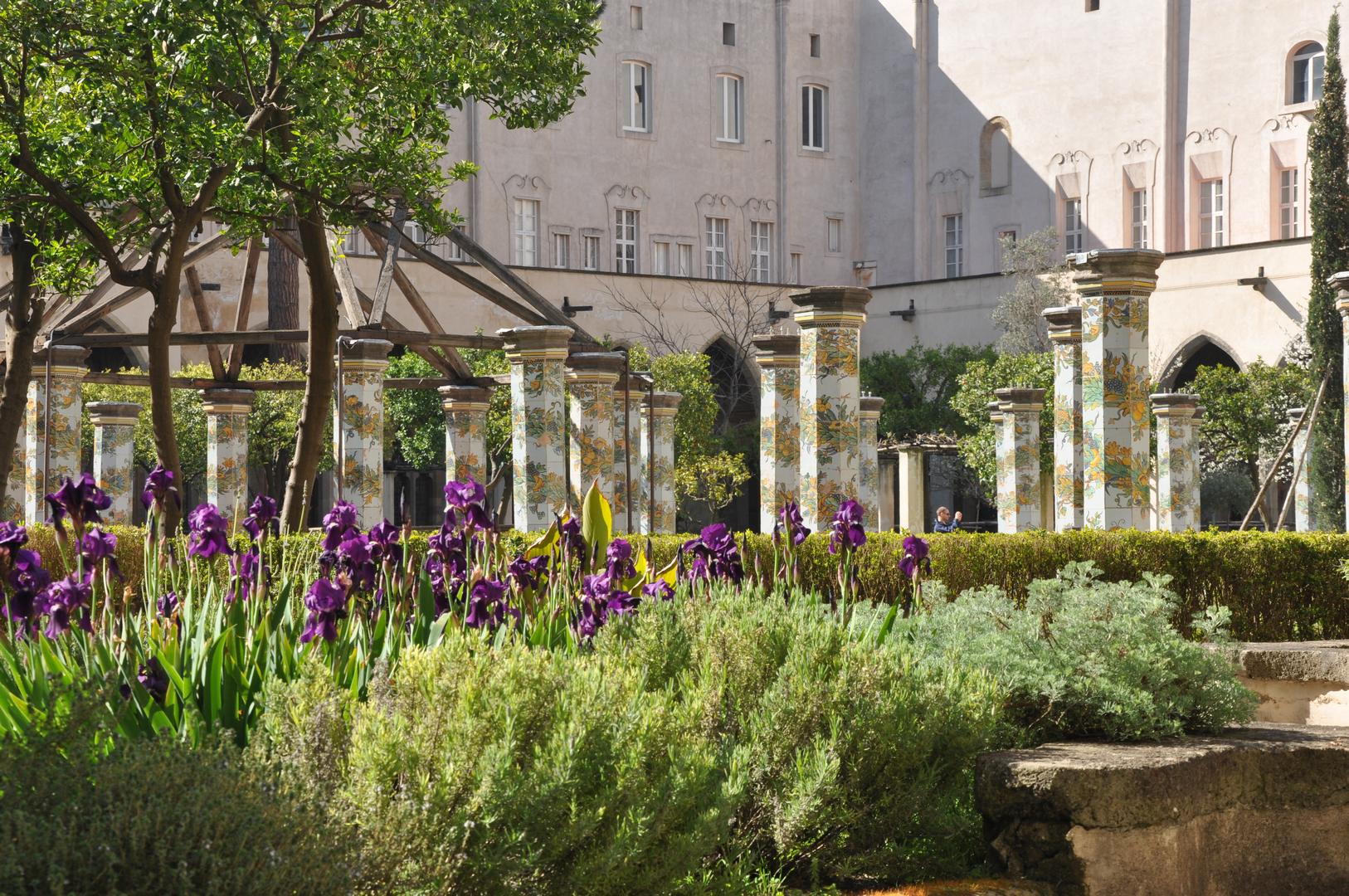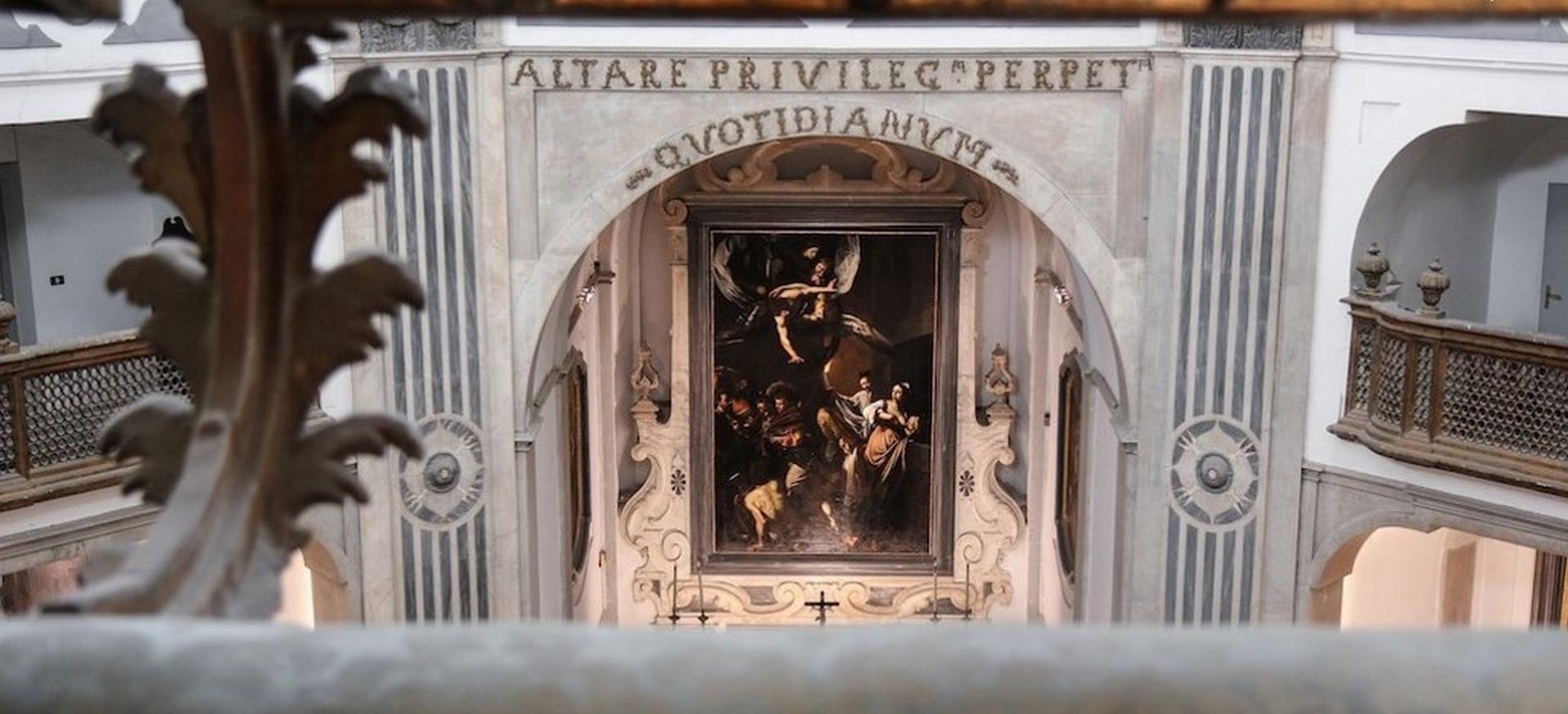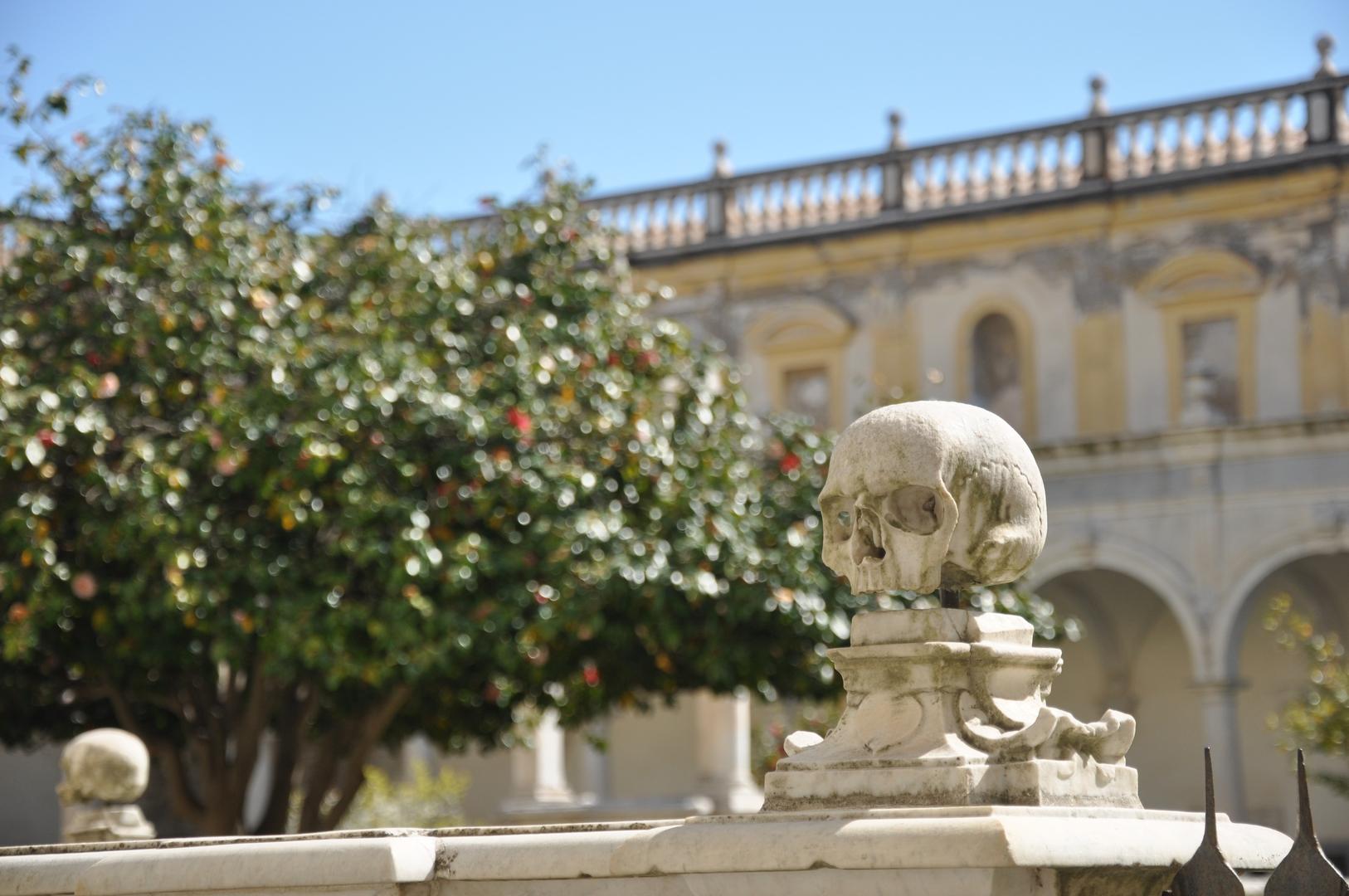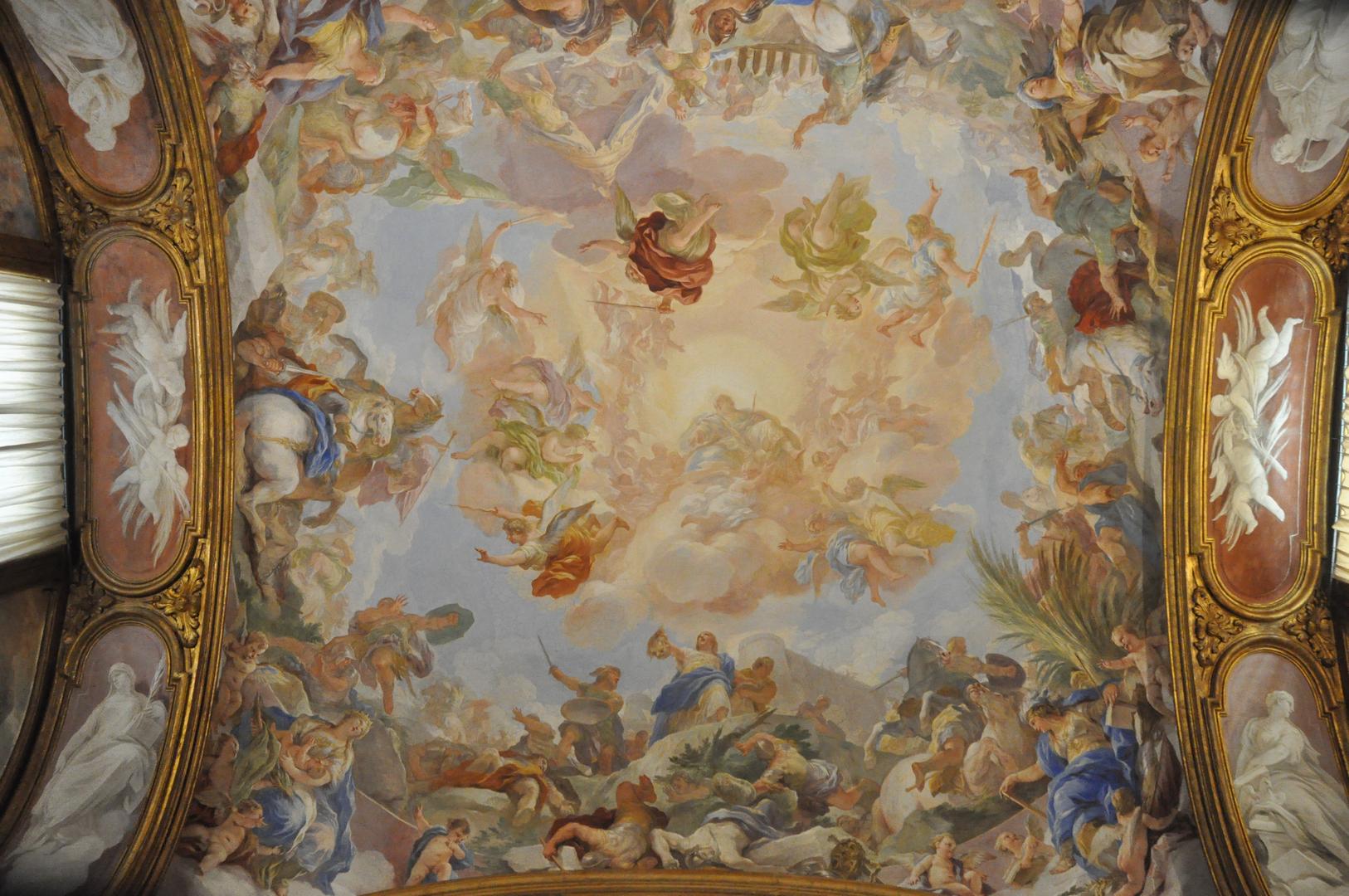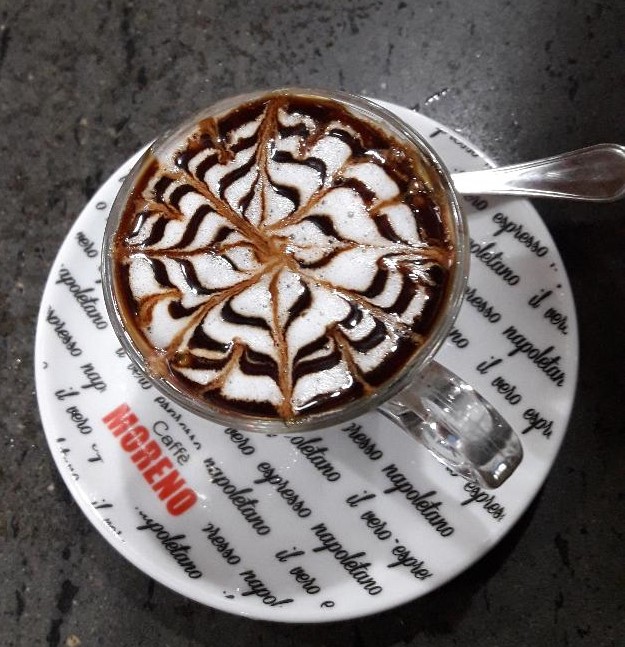In this covid19 era there is a new kind of giving added to the roster: paying for a stranger’s Covid test.
This initiative is supported by ‘SaDiSa, Diritti alla Salute’, ‘Fondazione Comunità di San Gennaro Onlus‘ and the Presidency of the 3rd Municipality of Napoli.
Though not a surprise that this Neapolitan world of subtle and anonymous generosity now includes a Covid test sospeso, the fact that it is happening in none other than the church of San Severo fuori le mura makes it even more unique.
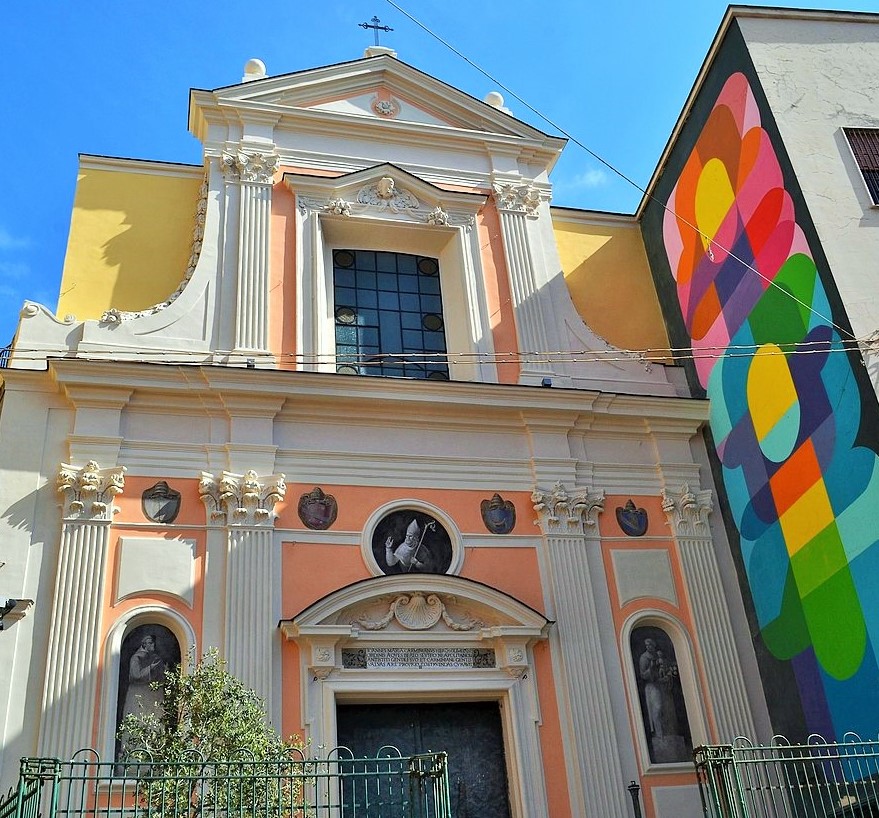
Church of San Severo fuori le mura
This church is where the sculptor and resident Jago, has exhibited his haunting masterpiece called “Figlio Velato”.
Jago is just one of the superstars in via Vergini. Another hero of the neighborhood is Father Antonio Loffredo who collaborates with Ernesto and Giuseppe Albanese, founders of L’Altranapoli.

Giuseppe Albanese with architect and designer Riccardo Dalisi in one of the “houses” opened in the Sanità neighborhood
They’ve been integral in bringing significant alternatives for the children in the area with, among other things, the creation of the orchestra Sanitansamble, a football pitch on the roof of a church, a gym, a recording studio designed by architect Giuseppe Albanese on top of the graveyard of the church of San Severo fuori le mura.

The recording studio designed by architect Giuseppe Albanese
“This recording studio offers music and joy also to the people buried there” Father Antonio said, and now L’Altranapoli will be expanding its work to the Forcella neighborhood.
As the public health care is saturated with testing needs, many must turn to the private sector. However, the costs for many, especially in this economic climate, are quite prohibitive. This grass-roots group is one of the non-profits behind the idea of the “suspended” swab test which is putting Naples on the map, once again, for its generosity and altruistic spirit.
Alice: Fiorella, speaking of generosity, I’ve got to tell you about one of my first memories of Neapolitan hospitality. I was in Naples for a month researching for my thesis in a time before the debit card so my American ATM only worked at only certain banks. The machine wasn’t working at the branch at the intersection with Montesanto and the teller literally walked me to the next branch on Via Toledo, along the way offering me a coffee at a small bar along the way.
We got our coffee in the bustling café and then went up to the till to pay. The man quickly and effortlessly put his hand to stop me and paid the bill – around 1,000 lire – was paid. I was flustered and kept saying “grazie, grazie…ma perche’?”
Why would a stranger pay for my coffee? He explained that it was just what was done in Naples, especially for a “guest” and that it was “just a coffee”. This impressive instance of Neapolitan generosity is just one of many.
I later learned to be a gracious in offering as I was accepting coffee and also about the culture of “caffe (or pizza) sospeso”, just one of the examples of how Neapolitans have a way of taking care of each other. This concept of “sospeso” can be applied in “gifting” anything for a person you don’t know who might be in need. A friend of mine told me that at her salumeria people paid it forward for those who needed a sandwich. With dignity and no questions asked. This is the spirit of Naples.
Fiorella: Totally fabulous. Yes, we’ve mentioned this idea about the caffè sospeso. Apparently it began in the post-war 1950s with coffee and has been a tradition of “paying it forward” in Naples ever since. In recent years, we’ve seen many more bars and pizzerias place signs or posters for people to leave change for the “suspended” coffees or pizzas. Visitors and locals happily participated and this tradition had not changed, even in the pandemic. In fact, this idea of paying for a stranger has now taken on a new form.
In the darkest times of the first lockdown, Naples made the news with how people were leaving food for others hard-hit by the economy, often in the famous panaro (the basket lowered down from the balcony); both the gesture and the basket emblematic of the inventiveness of the city we love so much.

Church of Immacolata and San Vincenzo, now a Theatre in Sanità. Sculptures by Riccardo Dalisi

Giuseppe Albanese and Luigi Malcagni manager of Save the children Campania in the Cristallini House celebrating the installation Flag Down by Mariangela Levita
